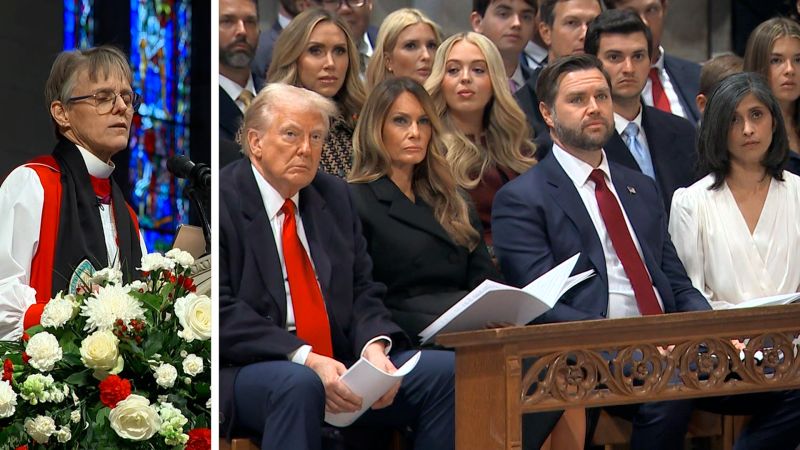Compassion Clash: Trump Confronted by Reverend's Urgent Call for Immigrant and LGBTQ Solidarity

In a powerful moment of spiritual leadership, Reverend Mariann Edgar Budde delivered a compelling and direct message to President Trump during a poignant interfaith Service of Prayer for the Nation at the National Cathedral. Her impassioned sermon sought to bridge divides and call for unity during a tumultuous time in the nation's history.
However, the president's response was notably dismissive. After the service, Trump spoke critically to reporters, seemingly downplaying the significance of the cathedral's heartfelt gathering and the reverend's earnest plea for national healing and understanding.
Reverend Budde's sermon stood as a bold testament to the role of religious leadership in challenging times, using her platform to speak truth to power and advocate for compassion, reconciliation, and mutual respect in a deeply polarized political landscape.

